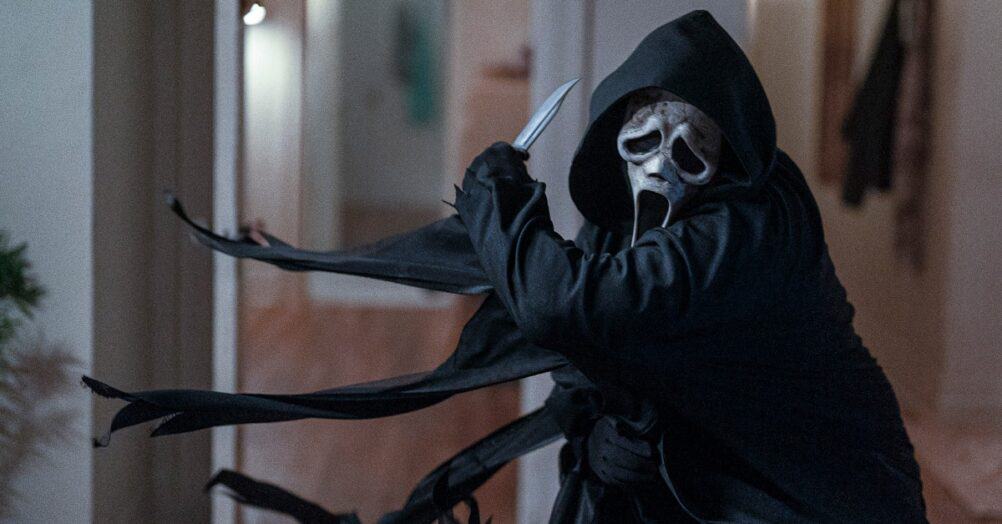Last Updated on August 5, 2021

PLOT: The true story of screenwriter Dalton Trumbo (Bryan Cranston) who found himself on the Hollywood blacklist during the communist witch-hunts of the late forties and fities. Unable to find work, Trumbo must adopt a series of pseudonyms to provide for his family, while also facing the threat of imprisonment merely for his beliefs.
REVIEW: TRUMBO is a film you can’t help but respect. Considering the way it dominated Hollywood for decades, it’s incredible that more films haven’t been made about the blacklist. Outside of 1976’s THE FRONT and 1990’s GUILTY BY SUSPICION, it’s been slim pickings if you wanted to learn about this dark period of screen history – shocking considering how the medium of film was so adversely affected.

In this era of fierce political debate, TRUMBO comes along at an ideal time as the political beliefs of Hollywood figures are still under-the-microscope every day, even if the town has become a kind of bastion of progressive politics compared to the days of HUAC (the House of Un-American Activities) and the oft-cited belief that it’s “better to be dead than red.”
For director Jay Roach, this is much more in-line with his political HBO telefilms like GAME CHANGE and RECOUNT. He rarely tackles drama on the big-screen, but he directs TRUMBO with a sure hand and, working from a script by John McNamara, seems well-versed on his subject’s career and flamboyant personality. He’s certainly got the perfect leading man in Bryan Cranston who – after an amazing run on Breaking Bad and in All the Way on Broadway – seems primed for a feature breakthrough.
Compared to his naturalistic performance as Walter White, Cranston is notably theatrical, although this is a necessity as it was Trumbo’s own outspoken-ness and flair-for-the-dramatic that both made his career and came damn close to breaking it. As Louis C.K’s cynical fellow blacklistee tells him early on, “it sounds like you want everything you say to be written on a stone tablet somewhere” (not an exact quote). Given its largess, it takes awhile to acclimate to his performance, but once you do it becomes clear that Cranston’s giving an award-caliber turn and, if you’ve seen archival footage of Trumbo, a very accurate one.

In terms of theatricality, Cranston is given a run-for-his-money by Helen Mirren, who plays the even more ego-driven Hedda Hopper, a fierce anti-community gossip columnist who had Hollywood under-her-thumb thanks to her insidiously popular gossip columns. Here she’s like Trumbo’s conservative doppelganger. While a crusader for freedom of speech, Trumbo was not an easy man to deal with, and the film never shies away from that, painting him as so ego-driven that he’s willing to ignore his family (with Diane Lane as his lovely wife and Elle Fanning as one of his daughters) in order to feed his muse, which consists of him popping pills and drinking bourbon while writing script notes in longhand.
Classic Hollywood buffs will get a lot of enjoyment out of this, with Michael Stuhlbarg doing an uncanny impression of Edward G. Robinson, who found himself in the HUAC cross-hairs even though he wasn’t a communist. Dean O’Gorman is also convincing as Kirk Douglas, especially once in Spartacus-gear, with much of the second half focusing on Trumbo’s work on that seminal classic. John Goodman has a fun role as Trumbo’s one loyal employer, a poverty-row producer who has him punching up d-list movies under a series of pseudonyms (even though a few like GUN CRAZY became classics).
While not an absolutely exceptional film, TRUMBO is a very entertaining slice of Hollywood lore and a great showcase for Cranston, who – after his Tony and Emmy win – may one day land in the coveted EGOT (Emmy, Grammy, Oscar, Tony) slot provided he makes more smart features like this (he should cut an album too to get that Grammy). TRUMBO is well-worth seeing and should please anyone interested in the darker aspects of Hollywood’s past.

































Follow the JOBLO MOVIE NETWORK
Follow us on YOUTUBE
Follow ARROW IN THE HEAD
Follow AITH on YOUTUBE